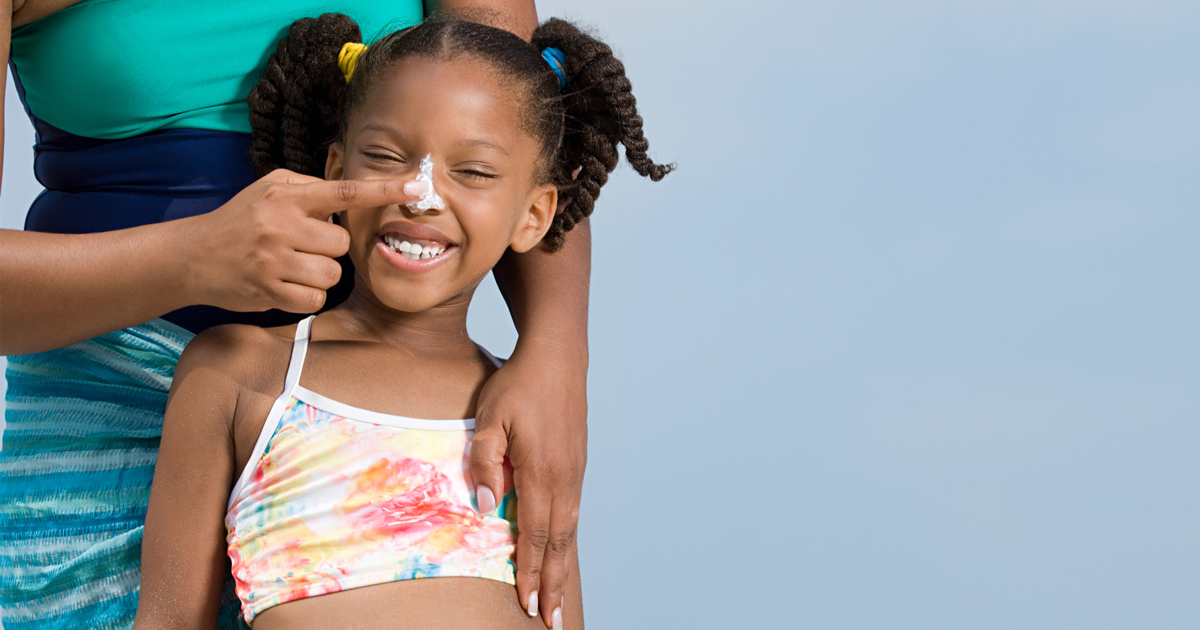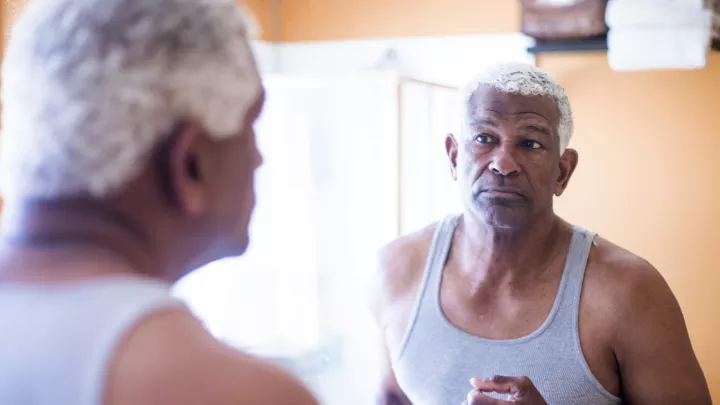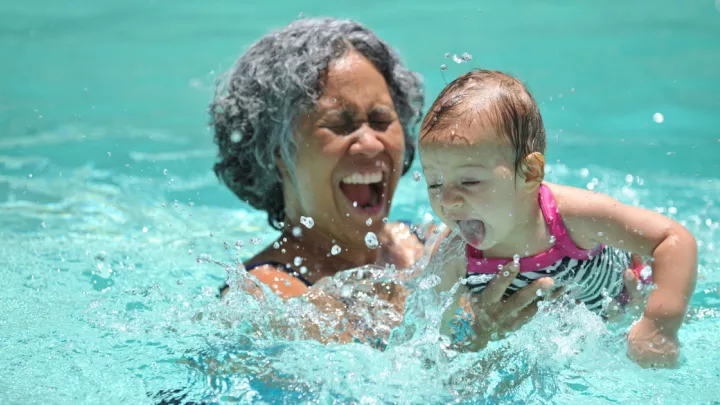3 skin care myths that affect people of color

With summer comes lots of sunshine. Find out once and for all whether people of color need to wear sunscreen, watch out for sunburns or worry about skin cancer. Here to debunk common skin care myths is academic dermatologist of color Kristie Hayes, MD. Plus, learn more about our Ethnic Skin clinic.
Myth: People of color don't need sunscreen
This is absolutely a myth. "All skin types benefit from the protection that sunscreen offers," says Dr. Hayes. Ultraviolet (UV) exposure from the sun is damaging to dark skin as well as light skin.
"Some types of sunscreen have more of a chalky appearance because of the physical blockers," says Dr. Hayes. "Just keep looking for the best sunscreen for your skin type, because there are so many choices available."
Tips for sunscreen:
- Choose broad-spectrum sunscreen with a sun protection factor (SPF) 30 or higher
- Apply 1 to 2 ounces of sunscreen (the size of a ping-pong ball)
- Reapply sunscreen every two hours, or more often if you're sweating. You should also reapply after getting out of the water
Myth: People of color never burn
It's also untrue that people with darker skin don't ever burn. "Anyone can get a sunburn with too much sun exposure," says Dr. Hayes. "Your risk is affected by skin type, the medications you take and your length of time in the sun. But it's a myth that anyone is immune to sunburn."
Every year, 1 in 10 Black adults and 3 in 10 Hispanic adults get at least one sunburn. Signs of a sunburn include blistering, swelling and later peeling.
Myth: People of color don't get skin cancer
The myth that people of color don't get skin cancer is harmful. Because of this belief, skin cancer is often diagnosed much later for people with darker skin.
"I've had family members with skin cancer," says Dr. Hayes. "People are often unaware of the fact that skin cancer can happen with any individual, of any skin type. Because of this, skin cancer is often diagnosed later at a more advanced stage. That affects the prognosis and outcome." Music legend Bob Marley died of skin cancer when he was just 36.
Dr. Hayes says that all skin types benefit from a yearly skin check-up. The earlier skin cancer is detected, the better the outcome.
Early detection is your best defense against skin cancer. Call 800.922.0000 to schedule an appointment with one of our board-certified dermatologists.
Ethnic Skin clinic
In July 2021, Dr. Hayes opened an Ethnic Skin clinic. "A wide variety of ethnic skin types have been previously overlooked in services and products," says Dr. Hayes.
The Ethnic Skin clinic will treat both acute and chronic conditions for people of all ages. African Americans, Asians, Hispanics, Native Americans, Pacific Islanders and people of other backgrounds can get specialized care just for them.
As an academic dermatologist of color, Dr. Hayes is excited to train dermatologists to treat all types of skin. "The lack of diversity in textbooks and articles has been well documented," she says. "One major reason we're launching the clinic is to train future generations of dermatologists how to treat diverse patients." There are fewer than 20 ethnic skin clinics in the United States that are affiliated with an academic dermatology clinic.







